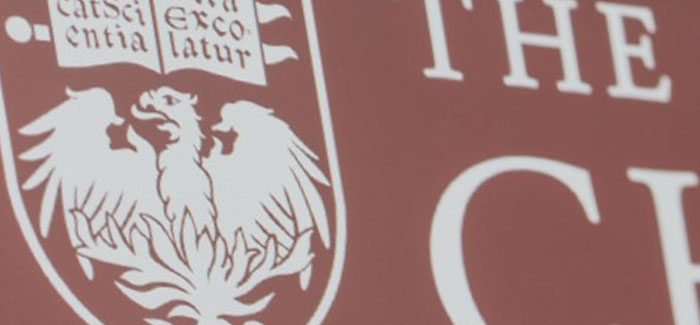Seriousness of purpose
Three alumni share their memories of working with professor James Heckman.
James Heckman is the Henry Schultz Distinguished Service Professor of Economics, a Nobel Memorial Prize winner in economics (2000), and an expert in the economics of human development. He has published more than 200 articles and several books, including Inequality in America: What Role for Human Capital Policy? (with Alan Krueger, MIT Press, 2003) and Law and Employment: Lessons from Latin America and the Caribbean (with Carmen Pages, University of Chicago Press, 2004).
Last November students and colleagues of Heckman held a conference in his honor at the Milton Friedman Institute for Economic Research called “Bridging the Gap between Economic Theory and Econometric Practice.” A few months later, Dialogo contributor Benjamin Recchie, AB’03, asked three of Heckman’s former students to share their memories of working with him.
Richard Robb, AM’83, PhD’85, manages a hedge fund and teaches at Columbia University. Brook Payner, AB’79, AM’81, PhD’87, is a founding partner at an investment management company in New York. Thomas Coleman, AM’81, PhD’84, is a retired hedge fund manager and adjunct faculty at Fordham University and Rensselaer Polytechnic Institute.
How did each of you come to know James Heckman?
Coleman: When I came to Chicago, they had a number of students without financial aid in the economics department, including me. I’m not actually exactly sure how I was introduced to Jim, but I basically went looking for a work-study job and was hired on the spot.
Payner: Tom and I met the first day of class as graduate students. After Tom was hired, he introduced me to Jim and I started working with him shortly after that. Richard was a couple of years behind us.
Robb: I vividly remember meeting Jim. I had seen his 1976 paper on sample selection bias when I was in college, so when I arrived at Chicago I thought, “I’ve got to keep an eye on this guy.” I went and knocked on his door and introduced myself, saying that I wanted to be his student. He seemed quite distinguished and ancient at the time—he was in his late thirties. Since I had a fellowship, it didn’t cost him anything to hire me, so he gave me some stuff to do.
What was it like to work with him as a graduate student?
Robb: Any of his students would recognize the seriousness of purpose with which he addressed problems. We would do our best to meet his expectations because he was also working with great effort. His objective was to solve a problem, not to write a paper or to be a careerist. I didn’t realize how rare this was at the time.
Coleman: You might say he was cynical about academics or the profession of economics but certainly never cynical about the problems that he worked on.
Robb: Our names would show up on papers as coauthors. We didn’t have to ask for it; he just did it because he thought it was right. It’s extraordinary.
Payner: The dissertation research that I was working on was a topic that had to do with the impact of government policy on black employment in the South. Given that I was from the University of Chicago, most people would think the answer would be that the government policy didn’t have a lot of impact, or the market had a more important impact. In fact, we found that the government had a very significant impact. I think that’s one of the most important things—that Jim focused on the data and trying to find what was really driving the results.
Can you share any memories of Heckman you think reveal his special character?
Coleman: So many of our memories are associated with going up to his office late in the day and just talking with him for an hour or two at a time, trying to work through a problem or talking about economics.
Robb: He has a deep knowledge of how concepts developed and originated in the history of economic thought and mathematics. He knows about the founders of topology in the 19th century, who they are and what they contributed. You wouldn’t expect that from a professor of economics—or anybody.
How do you keep in touch with him today?
Robb: I communicate with him in spurts, which wears me out because I can’t keep up. There was one time last year where we exchanged 40 e-mails in a 14-hour period. Then it will trail off and we won’t talk for months, and then we’ll pick up right where we left off.
Payner: I certainly always try to see him whenever I visit Chicago. Richard and I were there for the conference at the Milton Friedman Institute, and Tom and I have seen him together a number of times on campus over the past several years. We frequently invite him to visit.
Coleman: We suspect that he’s come to New York and not seen us.
Payner: We’re very offended by that. Put that in the newsletter. That way he’ll know he has to tell us when he’s in town.

